Paul Levinson's Blog: Levinson at Large, page 142
December 20, 2019
DNA Nation (Part 4, Chapters 18-24, Epilogue): Talkative Cookies
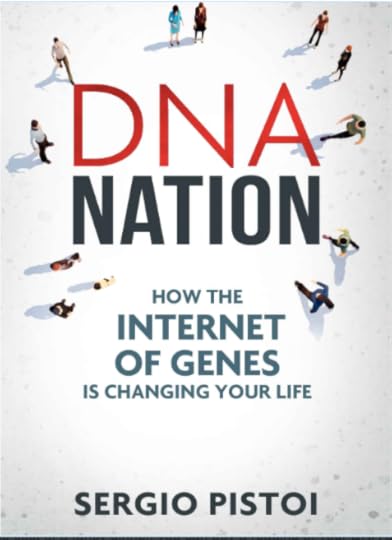
In the final chapters of his crucial and remarkable book, Sergio Pistoi observes that "Identical twins are the genetic equivalent of factory-made cookies: they have the same DNA ... They look very similar, and yet in many regards they are distinct" (p. 169). He then adds, "With the advent of the familial search, your DNA talks for you and your family, regardless of what you would like do (p. 180). That pretty much captures the long and the short of DNA Nation: How the Internet of Genes is Changing Your Lives: DNA figures in a lot of our life experiences, but it by no means dictates everything. And, as much as we might like to control who sees our genome and who does not, the revolution in consumer genomics has let that cat well out of the bag.
As we saw earlier in this book, some of the results of that DNA cat-at-large are beneficial. DNA profiles of relatives have helped police nab serial killers who have committed their crimes decades earlier. It's helpful to know we have a genetic propensity for an illness even if the likelihood of its finding expression in our lives is less than 20-percent. It could be gratifying to find a relative we had no idea existed. But the same garrulous DNA makes us vulnerable to a new kind of marketing based on knowledge of our genetic predispositions to this food or that, and anything we may buy. And in the hands of a totalitarian government, well, when that combines with non-DNA data we may make public, the sky's the limit in terms what that government might do to anyone it deems an enemy of the state (a term, I would add, that Trump repeatedly uses to describe the free press in America).
Further, this situation will only get more perilous in the future, when, Pistoi notes, "All children will have their DNA sequenced at birth and will keep their genetic file during their entire lifetimes, as if it were a social security number" (p. 199). The solution? There is none, other than awareness that this revolution is already occurring. Awareness is the necessary condition for taking whatever action we can to safeguard our privacy which, Pistoi aptly notes, "is a volume knob, not an on/off switch. Everyone has a level of privacy that suits their needs” (p. 196).
For example, I have a level of privacy that suits my need to acquaint more of the world with my science fiction, my scholarly writing, and my music. You the reader of this review will likely have a level that's different. The great virtue of DNA Nation is that it alerts us to be more careful and deliberate in deciding upon what level of privacy we need and want to pursue.
If some of this sounds like science fiction, that's because it currently is. But Pistoi's book makes clear that the ratio of reality and science fiction regarding the potent mix of DNA and social media in our lives is daily moving further into the reality part of the dial. Still, Pistoi observes that no science fiction author - "even the most daring writer - has envisaged a social network based on our genes" (p. 205). He's right, and, given his zest for knowledge and talent as a writer, I urge him to write it.
See also: DNA Nation (Part 1, Chapters 1-5): Reconfiguring Your Human Family ... DNA Nation (Part 2, Chapters 6-13): The Extraordinary Revolution and Its Intrinsic Limitations ... DNA Nation (Part 3, Chapters 14-17): Two-Edged Swords
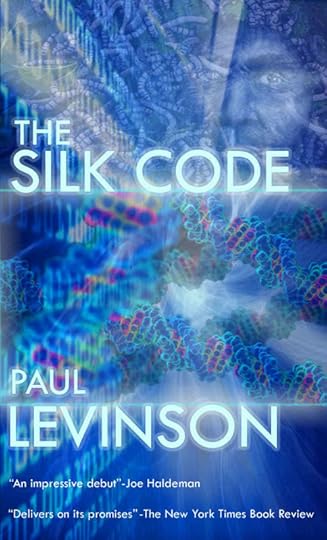 Paul Levinson's books ... Paul Levinson's music
Paul Levinson's books ... Paul Levinson's music
Published on December 20, 2019 13:06
December 19, 2019
Fourth 2020 Democratic Presidential Debate: Winners and Losers
I thought the 4th Democratic Presidential Debate - just concluded on PBS and CNN - was easily the best so far (but with the proviso that I saw and reviewed both parts of the first and second of these debates, but I didn't see the third, because I was up in Toronto doing this event). Maybe tonight's debate was stronger because there were fewer people up on stage, so each of the seven candidates got more time to talk. Maybe last night's Impeachment of Trump inspired the candidates (it certainly inspired me). But, for whatever reasons ...
I thought the exchange in response to the question about Obama's recent statement that women would do a better job of governing America was outstanding. All the candidates (with the exception of Yang, who I don't believe gave an answer) responded with clarity, style, and humor. That included Biden, who easily had his best night, and Steyer, who I thought really came into to his own tonight, with consistently strong answers about how his Presidency could tackle the problems of our time and really make a difference.
But Bernie had a powerful night too, with clear expositions of his socialist perspective. And Klobuchar was strong, in her defense of improving Obama-care rather than scrapping it in favor of Medicare for all, a position she shares with Biden, in opposition to Bernie and Warren. And Klobuchar and Buttigieg got in some good lines in their one-on-one exchange, as did Warren and Buttigieg in theirs.
So all the candidates, with exception (again) of Yang, had excellent nights in tonight's debate. Since Biden was already leading in the national polls, his having such a strong outing is especially significant, since it reinforces his already considerable strength. But Steyer stepping into the light was notable, too, and the performances of all the other candidates (other than Yang) was more than enough to keep them in the running.
See also First 2020 Democratic Presidential Debate, Part 1 of 2: Winners and Losers ... First Democratic Presidential Debate, Part 2 of 2: Winners and Losers ... Second 2020 Democratic Presidential Debate, Part 1 of 2: Winners and Losers ... Second 2020 Democratic Presidential, Part 2 of 2: Winners and Losers Paul Levinson's books ... Paul Levinson's music
I thought the exchange in response to the question about Obama's recent statement that women would do a better job of governing America was outstanding. All the candidates (with the exception of Yang, who I don't believe gave an answer) responded with clarity, style, and humor. That included Biden, who easily had his best night, and Steyer, who I thought really came into to his own tonight, with consistently strong answers about how his Presidency could tackle the problems of our time and really make a difference.
But Bernie had a powerful night too, with clear expositions of his socialist perspective. And Klobuchar was strong, in her defense of improving Obama-care rather than scrapping it in favor of Medicare for all, a position she shares with Biden, in opposition to Bernie and Warren. And Klobuchar and Buttigieg got in some good lines in their one-on-one exchange, as did Warren and Buttigieg in theirs.
So all the candidates, with exception (again) of Yang, had excellent nights in tonight's debate. Since Biden was already leading in the national polls, his having such a strong outing is especially significant, since it reinforces his already considerable strength. But Steyer stepping into the light was notable, too, and the performances of all the other candidates (other than Yang) was more than enough to keep them in the running.
See also First 2020 Democratic Presidential Debate, Part 1 of 2: Winners and Losers ... First Democratic Presidential Debate, Part 2 of 2: Winners and Losers ... Second 2020 Democratic Presidential Debate, Part 1 of 2: Winners and Losers ... Second 2020 Democratic Presidential, Part 2 of 2: Winners and Losers Paul Levinson's books ... Paul Levinson's music
Published on December 19, 2019 20:22
December 18, 2019
A Media Theorist Looks at Today's Impeachment: Tape Recorder, Telephone, and Television
"It started with a phone call," Brian Williams just aptly said on his MSNBC show, The 11th Hour, about what ignited today's impeachment of Donald Trump by the House of Representatives. That phone call, as everyone knows, was the one in which Trump tried to extort Volodymyr Zelensky, President of the Ukraine, to announce an investigation into Joe Biden and his son - "arms for dirt," as Former Federal Prosecutor Glenn Kirschner characterizes the price (dirt on the Bidens) that Trump was attempting to exact from Zelensky for release of crucial U. S. weaponry to the Ukrainians.
Fortunately, for those who value decency, the phone call was leaky. It was overheard, and then became known to the world via a whistleblower's good work. The Nixon tapes in 1974, which resulted in Nixon's resignation in order to avoid impeachment, became the phone call in 2019 which made Trump's impeachment unavoidable unless he too had resigned, which he never would.
And in the aftermath of that phone call, television took front and center stage, including through the historical vote for impeachment tonight. Traditional media, telephone and television, bringing a President to the edge of removal, just as the tapes had done to Nixon.
I think it's significant that, with all the attention Twitter and social media correctly receive as vehicles and conduits of politics today, it was two traditional media, which arose much earlier than social media, that carried the ball in Trump's impeachment. Which is evidence of a point I often make: new media rarely obliterate older media. Instead, though the newer media get most of the attention, the older media continue to do their job.
Tape recording, telephone, television. Older media, with venerable values. Just like democracy itself and its victory today.
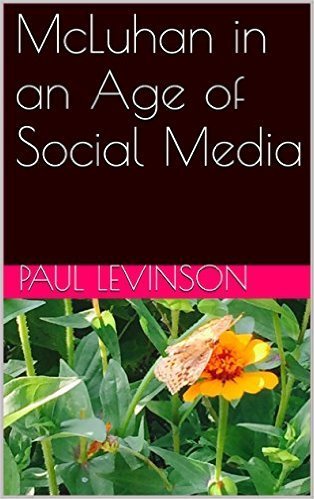
Paul Levinson's books ... Paul Levinson's music
Fortunately, for those who value decency, the phone call was leaky. It was overheard, and then became known to the world via a whistleblower's good work. The Nixon tapes in 1974, which resulted in Nixon's resignation in order to avoid impeachment, became the phone call in 2019 which made Trump's impeachment unavoidable unless he too had resigned, which he never would.
And in the aftermath of that phone call, television took front and center stage, including through the historical vote for impeachment tonight. Traditional media, telephone and television, bringing a President to the edge of removal, just as the tapes had done to Nixon.
I think it's significant that, with all the attention Twitter and social media correctly receive as vehicles and conduits of politics today, it was two traditional media, which arose much earlier than social media, that carried the ball in Trump's impeachment. Which is evidence of a point I often make: new media rarely obliterate older media. Instead, though the newer media get most of the attention, the older media continue to do their job.
Tape recording, telephone, television. Older media, with venerable values. Just like democracy itself and its victory today.

Paul Levinson's books ... Paul Levinson's music
Published on December 18, 2019 20:33
December 15, 2019
Watchmen Season 1 Finale: "So I Suppose the FBI's Gonna Arrest the President"

That was certainly the most relevant line in the Season 1 finale of Watchmen on HBO tonight - "So I suppose the FBI's gonna arrest the President?" If somehow you don't know why, I suppose you might've been living on one of Jupiter's moons for the last number of years or so, too.
As it was, that line was spoken by Adrian Veidt, back on Earth, just before someone hit him over the head to shut him up, on grounds that he talked too much. A dumb conclusion to what otherwise was the best night Veidt had on this series. Also, although there was a cool picture in the newspaper of President Robert Redford, I'd have preferred to see the real Redford in the flesh, or maybe the digital pixels, or whatever they are, on this season finale. Did they even offer him that part?
And yeah, the ending was good, but I'd much rather have heard John Lennon singing "I Am the Walrus," talking about originals. But the egg scene was done very well done. Starting with the literal eggs broken on the floor as an exemplification of the words of another Lenin - V. I. - who alas got no credit for those words in this alternate reality, maybe because Lenin, if he even existed, in this reality never said anything like if if you want to make an omelet, you have to break some eggs. (Or maybe continuity was too lazy to check that out?)
But the ambiguity of the very very ending, with no indication of whether Angela actually walked on water or not, was the right way to go. Because ... of course she walked on the water. We didn't have to see it to know that's what happened. Not only because why else would she have found that egg intact on the floor, after her husband had told her years earlier about eggs, and, we want to see a second season with Angela in super power form.
Which I'll likely watch.
See also Watchmen 1.1: Promising Alternate History ... [Watchmen 1.2: don't look for my review, I didn't feel like reviewing it] ... Watchmen 1.3: The Falling Car ... Watchmen 1.4: What We Learned ... Watchmen 1.5: Some Enchanted Evening ... Watchmen 1.6-7: Deaths and Liberations ... Watchmen 1.8: The Fault
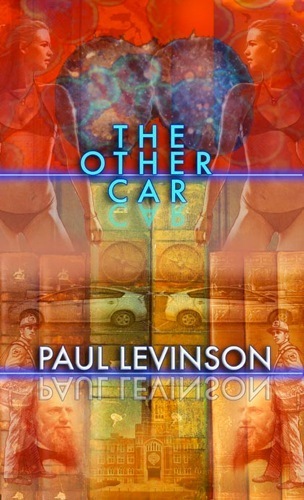
more alternate reality - "flat-out fantastic" - Scifi and Scary
Paul Levinson's books ... Paul Levinson's music
Published on December 15, 2019 22:52
Ray Donovan 7.5: Bing!
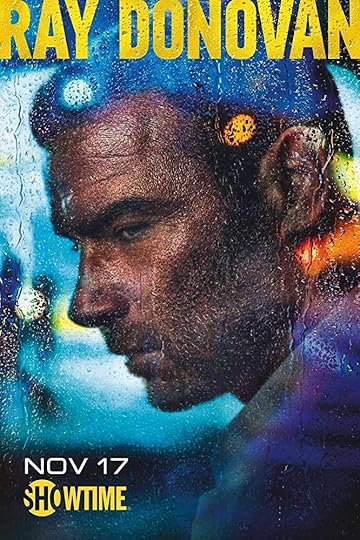
Another primo episode of Ray Donovan tonight - 7.5 - which ended with a great low Irish tenor voice from Bing Crosby singing "Too-ra-loo-ra-loo-rah". Bing's voice has been on television a lot these days, singing "There's No Place Like Home for the Holidays" for an ad for the US Postal Service. And, just for good measure, I recall reading somewhere years ago that "Too-ra-loo-ra-loo-ral" was John F. Kennedy's favorite song.
So lots of nostalgia in tonight's episode including the plot, which featured the return of another Sullivan - maybe the late Sully's brother - who had a major role in the Brinks robbery, which took advantage of Mick. All this while Ray is starting to fall in love with Molly Sullivan, which I hope he does. They should have had a shot of Ed Sullivan on some CNN retrospective of the 1960s, there were so many Sullivans around.
The episode also had a retired cop, Larry O'Malley, played by Mike Starr, who was so good as Tony on The Bodyguard. Tonight he gets electrocuted by Mickey, trying to get some information out of him. With Sandy and Daryll in on the action, this was good for some laughs, too.
And there was even what can only be described, against all odds, as a tender scene between Ray and Terry. First on the Cyclone, I don't think I've seen either of them, especially Ray, laugh so much. One of the best little scenes of the series. And then the deer - something very emotionally effective about that. And speaking of touching, what a scene with Alan Alda as Ray's shrink, hand shaking, saying he can't be Ray's shrink forever, because he has Parkinson's (which Alda in fact has).
And Dash Mihok as Bunch had a fine night, putting on masks of Hillary, Nixon, and Trump to get money for the mother of the kid he shot a few weeks ago. All this going on while Smitty finally grows some.
So, like I said, a primo episode. I'm really enjoying this season of Ray, and I'm looking forward to more.
See also Ray Donovan 7.1: Getting Ahead of the Game ... Ray Donovan 7.2: Good Luck ... Ray Donovan 7.3: "The Air that I Breathe" ... Ray Donovan 7.4: Claudette and Bridget
See also Ray Donovan 6.1: The New Friend ... Ray Donovan 6.2: Father and Sons ... Ray Donovan 6.4: Politics in the Ray Style ... Ray Donovan 6.6: The Mayor Strikes Back ... Ray Donovan 6.7: Switching Sides ... Ray Donovan 6.8: Down ... Ray Donovan 6.9: Violence and Storyline ... Ray Donovan 6.10: Working Together ... Ray Donovan 6.11: Settled Scores and Open Questions ... Ray Donovan Season 6 Finale: Snowfall and Mick
See also Ray Donovan 5.1: Big Change ... Ray Donovan 5.4: How To Sell A Script ... Ray Donovan 5.7: Reckonings ... Ray Donovan 5.8: Paging John Stuart Mill ... Ray Donovan 5.9: Congas ... Ray Donovan 5.10: Bunchy's Money ... Ray Donovan 5.11: I'm With Mickey ... Ray Donovan 5.12: New York
See also Ray Donovan 4.1: Good to Be Back ... Ray Donovan 4.2: Settling In ... Ray Donovan 4.4: Bob Seger ... Ray Donovan 4.7: Easybeats ... Ray Donovan 4.9: The Ultimate Fix ... Ray Donovan Season 4 Finale: Roses
And see also Ray Donovan 3.1: New, Cloudy Ray ... Ray Donovan 3.2: Beat-downs ... Ray Donovan 3.7: Excommunication!
And see also Ray Donovan 2.1: Back in Business ... Ray Donovan 2.4: The Bad Guy ... Ray Donovan 2.5: Wool Over Eyes ... Ray Donovan 2.7: The Party from Hell ... Ray Donovan 2.10: Scorching ... Ray Donovan 2.11: Out of Control ... Ray Donovan Season 2 Finale: Most Happy Ending
And see also Ray Donovan Debuts with Originality and Flair ... Ray Donovan 1.2: His Assistants and his Family ... Ray Donovan 1.3: Mickey ... Ray Donovan 1.7 and Whitey Bulger ... Ray Donovan 1.8: Poetry and Death ... Ray Donovan Season 1 Finale: The Beginning of Redemption
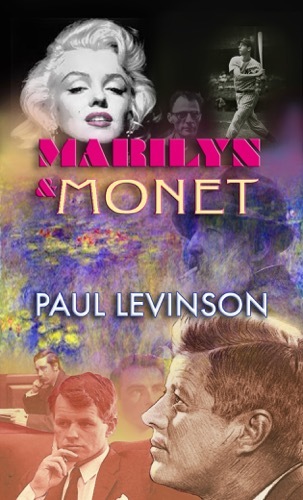
It started in the hot summer of 1960, when Marilyn Monroe walked off the set of The Misfits and began to hear a haunting song in her head, "Goodbye Norma Jean" ... Paul Levinson's books ... Paul Levinson's music
Published on December 15, 2019 19:54
December 14, 2019
DNA Nation (Part 3, Chapters 14-17): Two-Edged Swords

I've long held the obvious view that technology is a two-edged sword, ethically speaking: a knife can be used to cut food (good) or cut people (bad, unless the person wielding the knife is a surgeon) (see my "Guns, Knives, and Pillows" in On Behalf of Humanity: The Technological Edge for more). In Part 3 of the excellent DNA Nation: How the Internet of Genes is Changing Your Lives, Sergio Pistoi looks at some of the dark sides of the revolution in genomics, while keeping his eyes on the astonishing benefits of opening the documents of our DNA that are beginning to come into play.
Pistoi explains that, in contrast to the relatively few deadly diseases (such as Huntington's) which are monogenic or caused by a single harmful mutation, most (including cancers) are multifactorial, "with thick and elaborate plots, where a criminal network of genetic and non-genetic factors conspire to develop the pathology. Think of Breaking Bad, Narcos and The Wire combined – but way more complicated" (p. 121). Although I and no doubt Pistoi loved those series, the upshot for prevention and control of such illnesses is that identification of a complicit gene tells far less than the whole story. Pistoi reports on a man who had what was mostly likely unnecessary extensive prostate surgery, after a suspect genetic mutation was flagged in his DNA.
But Pistoi goes on to detail some of the treasure-trove of benefits of DNA testing that are becoming available so fast that Pistoi may need to update his book on at least a yearly basis. Via "a technique called Pre-implantation Genetic Diagnostic ... embryos are obtained in vitro from the egg and sperm of the couple, and DNA tested to select the ones without the mutation” (pp. 123-4). I still have a book on our shelves called A Fortune in the Junk Pile - about finding valuable antiques in tag sales and flea markets - and Pistoi delves into the value of what was labeled "junk DNA" because it seemed to have no connection to somatic traits. In fact, this DNA is now known to have the crucial "epigenetic" function of regulating the performance of genes, which allows the "reprogramming" of normal adult cells into stem cells (p. 147). (As a science fiction author, I was especially glad to see this redemption of junk DNA - my April 1996 novelette in Analog, "The Copyright Notice Case," situated an ancient copyright in our DNA in the junk DNA we all carry; the story is in my 1999 Bestseller anthology).
And, just for good measure, Pistoi tells us that “Our bodies host ten times more microorganisms than our own cells" and "there is evidence that gut bacteria can protect or predispose us to pathologies ranging from inflammation to diabetes and obesity" (p. 149). I was especially glad to see this, just as with the junk DNA, since my novel The Consciousness Plague hypothesizes that our very consciousness is made possible by communicative bacteria that live in our brains. Outside of the realm of science fiction, Pistoi notes that bacteria and fungi in our biome add an important dimension to our DNA unveiling.
And I'll be back soon with my concluding review of this book which has updated my knowledge of DNA more than anything else I've read in the past twenty years. Its overarching message: no food, no medication, can be deemed to be good or right for you, until it's matched to your DNA, a process which is still in its toddlership.
See also: DNA Nation (Part 1, Chapters 1-5): Reconfiguring Your Human Family ... DNA Nation (Part 2, Chapters 6-13): The Extraordinary Revolution and Its Intrinsic Limitations

Paul Levinson's books ... Paul Levinson's music
Published on December 14, 2019 08:40
December 13, 2019
Evil 1.10: The Influencer

A powerful, frightening Evil 1.10 - befitting the Fall finale of the new series - and an episode that really lifted Evil into a higher, more harrowing level of story, which of course also befits a series with this name.
Two members of our team - Kristen and David - are afflicted with different, but likely related perils. Likely, because I'd say Leland the neo-devil is probably behind both of them, though at this point we know that for sure only with Kristen.
The episode begins with an ear-worm of a Christmas song, so annoying that I was thinking of turning off the sound and reading just the transcript on the screen, lest I be affected, too. But annoyance is not the real danger or the worst possible effect of the initial conveyor of the song, a young woman influencer who makes a make-up (as in powder) video for young teenagers. The danger is a male voice talking on a frequency that only teenagers hear, urging them to commit suicide. (I'm wondering if there is such a frequency. Yahoo says there is. But I don't have time to further research this, and, anyway, I'm in television-drama review, not research, mood.)
But the frequency makes a good evil plot point, and the real kicker is that Leland gave the influencer the video souped up with the sub-rosa male voice. And it worked - the video increased her followers from two thousand to two million. Leland, as I noted in an earlier review, is turning out to be a real devil in Evil. And, in this episode, he also, somehow, influences Kristen's mother Sheryl to influence granddaughter Lexi to hit another girl with a rock in Lexi's fist, after said girl pushes Lexi down and she scrapped her knee. It's becoming more clear, with every episode, that Leland deserves the title of The Influencer, with the capital "I". and this Influencer is the Devil.
Meanwhile, David is also experiencing some problems, mostly connected to the sister of his late beloved, whom he slept with last week (that is, the sister). In the last scene, these weirdnesses culminate with David being badly stabbed. Here, I'll offer again my principle that if we don't see someone's head chopped off or blown up, and he or she is the star of the show, chances are he or she will survive.
We don't know, though, exactly how Leland is connected with this. If he isn't, what else is going on? We'll no doubt find out when the show returns in 2020.
See also: Evil: Incubus Mystery ... Evil 1.2: Miracles and Racism ... Evil 1.3: Possessed Alexa ... Evil 1.4: Raising the Ante ... Evil 1.5-6: Seeing Red ... Evil 1.7-8: Sigils and Weight ... Evil 1.9: The Deposition
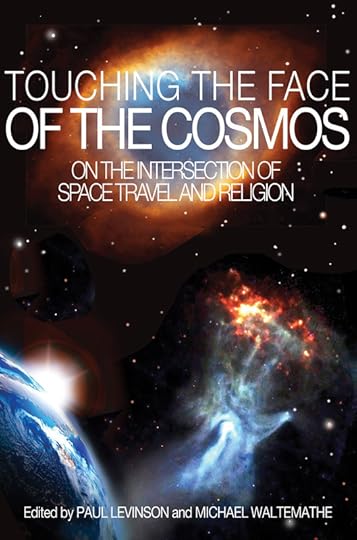
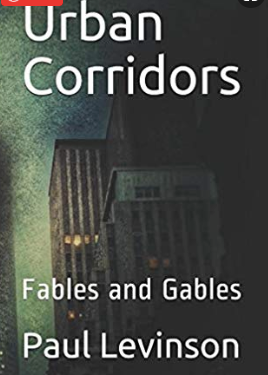 Paul Levinson's books ... Paul Levinson's music
Paul Levinson's books ... Paul Levinson's music
Published on December 13, 2019 15:59
December 12, 2019
DNA Nation (Part 2, Chapters 6-13): The Extraordinary Revolution and Its Intrinsic Limitations

In the April 1, 1993 issue of Wired, in my little article The Extinction of Extinction, I mused that, someday, "Heaven may well be a huge directory of DNA codes". Although that date was April Fool's Day in many parts of the world, I wasn't kidding. In Part 2 of the pathbreaking DNA Nation: How the Internet of Genes is Changing Your Life, Sergio Pistoi details exactly how that could come to be.
His tour, engagingly written and socially astute, just like Part 1 of this book, takes us from the mechanics of gene harvesting and analysis to the replacement of laboratories with crowdsourcing as the locus of DNA subjects. As I pointed out in New New Media back in 2009, the same level of error in the expert-driven Encyclopedia Brittanica and the crowd-sourced Wikipedia demonstrated as far back as 2005 that crowdsourcing was at least as effective as experts in the accumulation of knowledge. Pistoi explains that, in the ongoing linking of genes to crucial and trivial aspects of our lives, the "democratization" of genetic research is already becoming far more effective than studies in labs. “I’m sitting on the couch, barefoot, holding a laptop and watching TV and someone tells me I am contributing to a genetic study," Pistoi notes. "Is that a joke?” (p. 104). In his savvy, entertaining style, Pistoi shows us why it most certainly is not.
But Pistoi also repeatedly cautions and explains how so much our lives, at present, defy any genetic explication. He notes that "Predicting multigenic characteristics from DNA is like watching a party of people and guessing where they will choose to go for dinner" (p. 72), adding, as just one of many examples, that "sexual preferences are multifactorial traits involving many genetic and non-genetic factors, most of which are still unknown" (p. 99). We, accordingly, need to beware of companies "selling digital snake oil" (p. 91). The upshot, ranging from choice of sexual partners to food preferences, is that genetic causes, though now discoverable in ways totally unavailable for most of our history, are still poorly mapped, if known at all, for huge swaths of our daily lives. Including, for better or worse, frequency of "orgasms".
And, speaking of sex, Pistoi brings a commendable moral gauge to his book. He concludes his debunking of the "gay gene" - that homosexuality is a genetic predisposition - with an insistence that "people should not have to justify their sexual preferences for other consenting adults" (p. 102). In addition to being a molecular biologist, science reporter, and chronicler of how genomic sites like 23andMe are "similar to social media like Facebook, Instagram and Google, which offer free services in exchange for the user’s data" (p. 107), Pistoi applies a keen moral sense, which enhances the pleasure of reading his book.
And I'll be back soon with one or two concluding reviews of the rest of this eye-opening new book.
See also DNA Nation (Part 1, Chapters 1-5): Reconfiguring the Human Family
 "DNA is the ultimate dossier" - NY Times Book Review
"DNA is the ultimate dossier" - NY Times Book Review
Paul Levinson's books ... Paul Levinson's music
Published on December 12, 2019 10:14
December 10, 2019
Emergence 1.9: Benny!

Well, in my review of the most recent episode of Emergence - 1.8 - I said that "An important character could be an AI - like Officer Chris." I was wrong about Chris. But not about an important character being an AI. It turns out in episode 1.9, on earlier this evening, that the hidden AI is Benny. A good choice, since it explains some of his unusual characters, like being so quick to recover from injury.
This means that AIs are a lot more prevalent than just Piper. There are adults, ensconced for who knows how long in society, who are AIs. And in the last scene, we learn that they're not just Benny. The woman who's offering Ed a cure for his cancer is an AI, too.
Chances are Emily didn't make all of them. So, who did? And many other questions arise: when were they made? And how many AIs are there at large? Assuming the makers aren't aliens or people from the future - both of which would be a little trite - we're left with the possibility that there's some group who've been working under the radar for years with this advanced technology.
I also guessed earlier this year that Piper would be the one to cure Ed's cancer. She suggested that tonight. But that's going to have to wait a while, until Jo is able to retrieve Piper. Suddenly, the FBI guy joins Jo's husband and Ed and Chris as being Piper's best - and only - hope.
This is a pretty good way to wrap up the Fall part of the season. Emergence will be back January 7, 2020. I'm looking forward to its return. At this point, though, the only episode listed for 2020 is #10 on January 7. I'm hoping there are more.
See also: Emergence: May Just Make It ... Emergence 1.2: Cleaning Up ... Emergence 1.3: Robots and Androids ... Emergence 1.4: Android Child ... Emergence 1.5: Supergirl ... Emergence 1.6: The People Who Are Kindred ... Emergence 1.7: Piper's Real Mom ... Emergence 1.8: Spinning
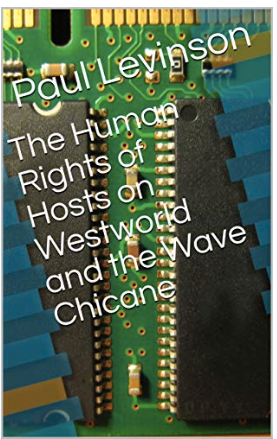

The androids are coming out into the open, for the first time in centuries .... Paul Levinson's books ... Paul Levinson's music
Published on December 10, 2019 21:43
DNA Nation (Part 1, Chapters 1-5): Reconfiguring Your Human Family

I enjoy bing-watching television series. I think it's a real break-through in our popular culture. I occasionally run into myopic critics of technology in academia, who see binging as somehow a debasement of our culture. I always reply that binge-watching a television series brings to the audio-visual screen the same options we have with the venerable medium of the book, which we can read as fast or slowly as we like. And every once in while, I come across a book which indeed demands to be savored, not binge-read. DNA Nation: How the Internet of Genes Is Changing Your Life by Sergio Pistoi is such a book. Accordingly, having read the first part (chapters 1-5) today, I'm going to post this review. And I'll be back, likely more than once, with one or more reviews when I've read the succeeding four parts, like in the next few days (See my reviews of Dreaming the Beatles and The Perversity of Things for two other sequential, much longer, book reviews.)
Pistoi is a molecular biologist, with a philosopher's understanding of human nature and a media theorist's instinct for understanding the evolution and impact of social media. He brings these talents to be bear in a package at turns both sagely and delightfully written, a handbook as much as a book, explaining how the scientific revolution of analyzing our DNA - which can be done for $100 or less, by sending a sample of your saliva - is pulling the rug out from under many of our preconceptions, ranging from where in the world our ancestors came from to who really are our closest and not-so-close relatives? Along the way, DNA Nation eradicates whatever shred of scientific support the 21st racist may cling to, pointing out that DNA mapping shows more differences within racial groups than between them: "you may be more similar genetically to someone you identify as belonging to a different 'race' than your neighbor who looks very much like you" (p. 44).
And Pistoi leavens such weighty lessons with continuous wit and humor. “A genetic profile is not just a biological test," he advises, "it’s a selfie taken from inside our cells” (p. 50). And, "I could couch-surf for decades around the world visiting all my cousins. And if only half of them invited me to family celebrations, I could spend an entire, terrifying life attending marriages, baptisms, first communions, Thanksgiving days and graduations" (p. 18).
Sex, always a good thing to write about, of course figures prominently in this book. Indeed, it's the reason all of us humans are so genetically alike. And it may even extend across species, or does extend across disparate groups of our own species. Did our ancestors actually sleep with Neanderthals? Our current DNA proves it, Pistoi notes, and helpfully adds, "If you have seen a diorama of a Neanderthal you may doubt it, but DNA doesn’t lie, and humans have never been too choosy with sex anyway” (p. 36).
But the thrust of the first part of this essential book is not the several percentages of Neanderthal DNA that some of us carry, but the way knowledge of our genetic profile, combined with the ubiquity of the Internet, has created a new world in which everything from family and friends to ethnic identities are starting to radically change. I'll be back soon with more reviews of this book as I read further about this upheaval in preconceptions in daily progress.
 "DNA is the ultimate dossier" - NY Times Book Review
"DNA is the ultimate dossier" - NY Times Book ReviewPaul Levinson's books ... Paul Levinson's music
Published on December 10, 2019 16:47
Levinson at Large
At present, I'll be automatically porting over blog posts from my main blog, Paul Levinson's Infinite Regress. These consist of literate (I hope) reviews of mostly television, with some reviews of mov
At present, I'll be automatically porting over blog posts from my main blog, Paul Levinson's Infinite Regress. These consist of literate (I hope) reviews of mostly television, with some reviews of movies, books, music, and discussions of politics and world events mixed in. You'll also find links to my Light On Light Through podcast.
...more
- Paul Levinson's profile
- 340 followers



